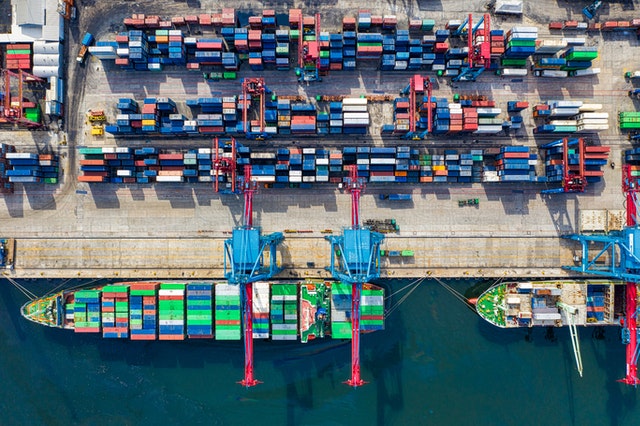Are FMC’s Proposed Refusal of Service Rules Dangerous?
Controversy continues to swirl around the Federal Maritime Commission’s (FMC’s) proposed rules on “unreasonable refusal to deal or negotiate with respect to vessel space accommodations provided by an ocean common carrier.”
Refusal of service turns out to be a difficult topic, leading to contentious rulemaking.
The Ocean Shipping Reform Act of 2022 (OSRA) gave the FMC a long rope to write new rules for the international shipping industry. Now the commission is walking it like a tightrope according to the title of a Journal of Commerce (JOC) article by Mark Szakonyi that was published yesterday. But it’s possible the FMC is tying the rope into a noose that will strangle the free market of America’s international shipping.
Szakonyi started his article with:

A change in how the US Federal Maritime Commission (FMC) is approaching contentious rulemaking on when a container line can refuse to serve shippers could significantly alter the regulatory landscape by making it hard for carriers to turn away loss-making cargo or not honor a booking.
Frankly, I think those two situations should be treated completely differently from each other, as they are very distinct situations. The law probably should make it difficult not to honor a booking. Once a deal has been made, both parties should honor that deal. When it comes to turning away loss-making cargo, I generally have trouble thinking the law should stand in the way of that unless a deal has already been made in good faith.
Szakonyi puts this contentious rulemaking from the FMC succinctly:
[The FMC] has taken the suggestions of some agricultural exporters, along with other shippers, to forbid container lines from refusing shipments because the economics aren’t justifiable. Container lines are worried about the myriad of implications for their ability to run their networks, and ultimately, when they can turn away less profitable or even loss-making bookings.
This probably won’t be popular with many shippers, and I know you’re my main audience, but I have to agree with ocean carriers on this. Regulation that forces businesses to make deals or provide service that is unprofitable sounds like bad regulation. The proposed rules might sound good to shippers, but if the government forced your business to make unprofitable deals and suffer losses, wouldn’t you have a problem with that?
Businesses have to make profits to be viable. That’s foundational. It’s existential.
If carriers can’t consider basic business factors like profitability when determining shipments to take and customers to serve, how devastating could that become to their businesses? Where might they have to raise rates to make up for losses? How many carriers might be driven out of the market altogether? How would this not, in the long-term, be bad for this industry and, yes, for shippers themselves?
How does the FMC answer such questions? How does it explain how this policy will work to protect the industry from such feared outcomes? According to Szakonyi’s article, not well:
The FMC’s explanation for the changes isn’t exactly straightforward. “Profit and business factors may be present when engaging in negotiations, but these factors would have to be considered alongside other factors presented when the commission is determining what the true driving factor is for refusing to deal in a given case and whether that driving factor is reasonable,” the agency wrote.
That sounds like financial loss is not enough grounds to refuse service. Maybe profitability could be considered alongside other factors, but even that is unclear.
I don’t claim to be a legal expert, but there are some principles I believe are extremely important when it comes to law. Clarity is high on the list. Law needs to be clear, and clearly, that’s a problem with the FMC’s proposed refusal of service regulation.
Additionally, people – or businesses – must only be asked to follow laws they are able to obey. Unclear laws fail in that department, and so do laws that would force businesses to operate at loss. That’s unsustainable. Two strikes.
Furthermore, laws should be applied fairly and equally. How can unclear law be applied equally? This sets the FMC up to be able to decide what the criteria is that makes refusal of service illegal on a case-by-case basis. When laws are subjective instead of objective, they not only become difficult to follow but they can make it easy to target a person or business.
I do think U.S. exporters, and agricultural exporters in particular, need to be protected. And protected from unfair refusal of service. I’ve gone on record a number of times to say so.
In a post near the end of 2020 about carriers withholding shipping containers from agricultural exporters and whether its illegal, I opened with the statement: “U.S. agricultural exporters are getting screwed.”
In March of 2021, I told reporter William Schulz “I believe exporters are raising a very valid concern” when he asked me to respond to a letter agricultural exporters sent to the president about carriers refusing them service. In fact, when I laid out what was happening in the international shipping industry, I ended by calling out the problem of carriers refusing agricultural exporters service to prioritize more lucrative shipping routes:
“… here’s where U.S. agricultural exporters really have a complaint: carriers withholding shipping containers and services from them. It seems pretty clear that carriers prioritized getting shipping containers back to Asia, where they were making more money on eastbound transpacific routes, delivering goods from China to the U.S. especially, over getting containers to U.S. exporters. Rather than shipping containers full of U.S. agricultural goods to Asia, they shipped empty containers back to Asia, seriously damaging U.S. agricultural exporters’ ability to ship their goods.”
My worry is that to fix one problem, the FMC may be creating an even bigger one.
But that’s just my opinion. I’d love to read yours in the comments section below.





